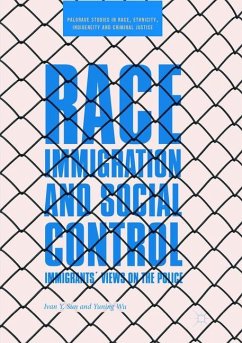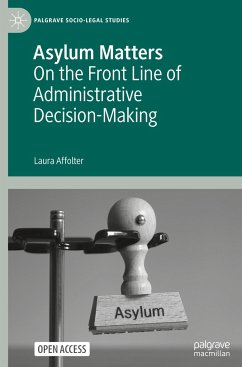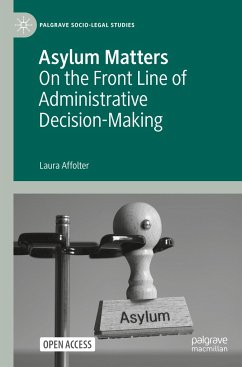
Arab Americans in the United States
Immigration, Culture and Health

PAYBACK Punkte
19 °P sammeln!
This open access book provides a unique perspective on the relationship between immigration, culture, and health. It presents a cross-cultural perspective between culture and illness. It touches upon identity struggles, the notion of not feeling "safe, understood, accepted," and its relation to Arab American health. The book provides a comprehensive review of the history of Muslims in America and discusses better healthcare services for chronic illness-diabetes. It provides an ethnographic framework for building cultural belief models of illness, which helps study any illness among any populat...
This open access book provides a unique perspective on the relationship between immigration, culture, and health. It presents a cross-cultural perspective between culture and illness. It touches upon identity struggles, the notion of not feeling "safe, understood, accepted," and its relation to Arab American health. The book provides a comprehensive review of the history of Muslims in America and discusses better healthcare services for chronic illness-diabetes. It provides an ethnographic framework for building cultural belief models of illness, which helps study any illness among any population. It is a must-read for everyone interested in understanding the relationship among culture, health, and immigration, as well as the importance of building cultural belief models of illness and their possible impact on providing better healthcare services. The book is of interest to scholars, caregivers, and those living with diabetes.












